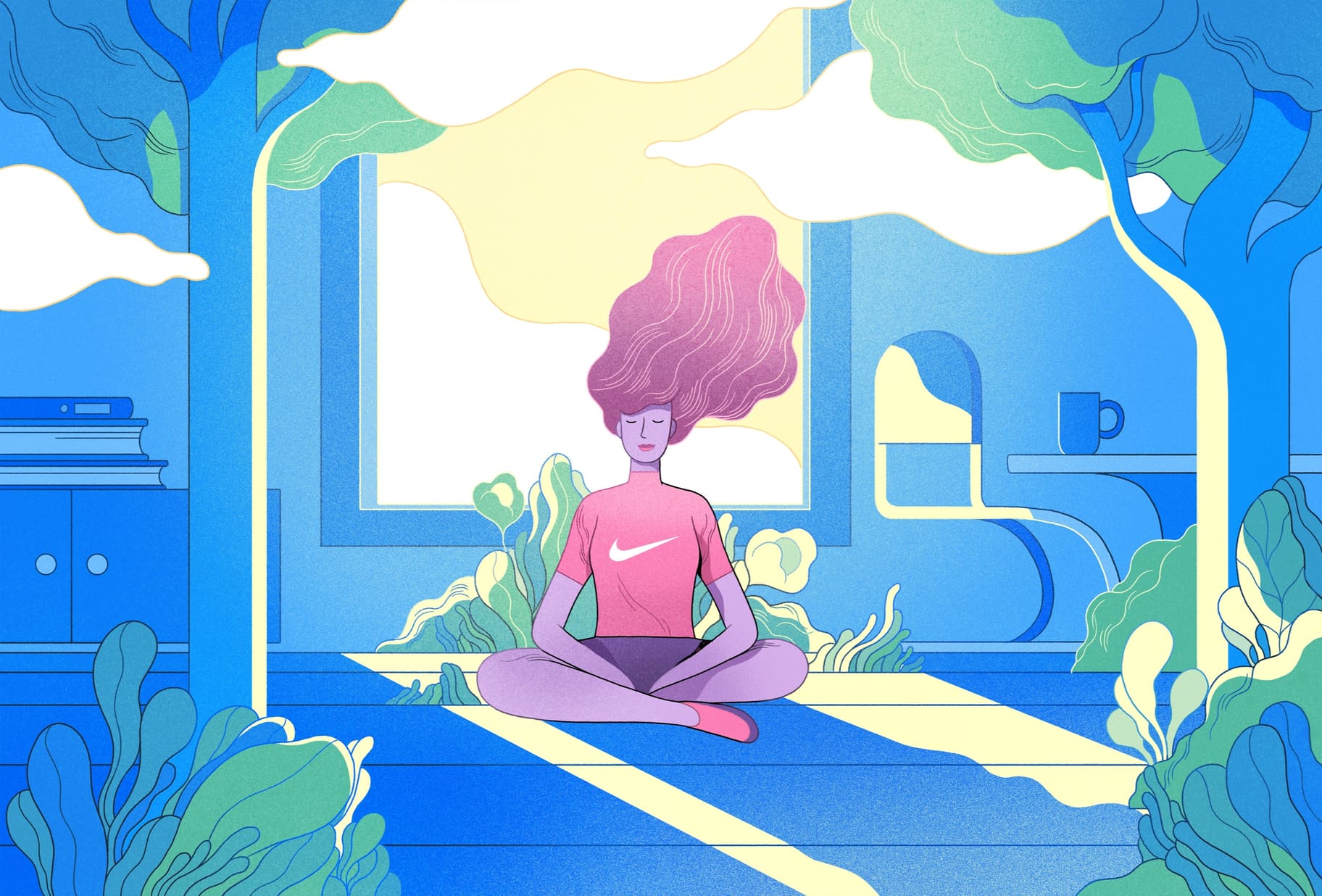The Benefits of Solitude—and How to Actually Enjoy Them
Coaching
Being alone doesn't mean you have to feel alone. Learn how to maximise your me time to do great things for your body and mind.

Sometimes there's nothing better than spending a night alone on the sofa watching whatever you want on TV, or skipping your group workout to enjoy a really long trail run on your own. But choosing to be alone is very different from feeling alone.
The latter can be a natural side effect of isolation, especially the forced variety, according to a new review published in 'The Lancet'. And for some, that feeling of loneliness may lead to anxiety, depression or other mental health issues. If that sounds like you, you're not, for lack of a better word, alone.
Humans are naturally social animals. We need our family and friends to survive mentally and physically. It's the combination of our brain's 86 billion nerve cells and all the people in our social circle that help us thrive, think faster and work better, says Stephanie Cacioppo, PhD, a neuroscientist and Nike Performance Council member who specialises in mindset and loneliness. And your mood? Yeah, socialisation impacts that too, adds Sari Chait, PhD, a clinical psychologist and the founder of the Behavioral Health & Wellness Center, in Newton, Massachusetts. Your loved ones can help you feel supported and lift your spirits, and the more socially connected you are with them, research suggests, the better your emotional health.
That doesn't mean time alone, by choice or not, has to be a bad thing. It can actually be a luxury. "Spending time in solitude—and being content with it—allows you to focus on yourself and what your needs are", says Chait. Plus, extra me-time is a solid opportunity to dust off old hobbies you've lost touch with, set your sights on new goals, sharpen your coping skills, and, in some ways, even build healthier relationships. And without the noise of the outside world to interrupt, you're better equipped to reap the benefits too.
Here's how to make the most of the quiet.
"Spending time in solitude—and being content with it—allows you to focus on yourself and what your needs are".
Sari Chait, PhD, clinical psychologist and the founder of the Behavioral Health & Wellness Center

Unplug Your Workouts
Exercise, with all its feel-good hormones, can help buffer feelings of loneliness or sadness, research shows. And when you go at it alone, you have "a unique chance to zero in on what is essential to your body, mind and emotional needs", explains Hillary Cauthen, PsyD, a certified mental performance consultant, and executive board member for the Association for Applied Sport Psychology.
A couple of times a week, train without your watch or headphones. As you move, observe at least five distinct things about your body or the world around you, suggests Cauthen. For instance, take note of your breath, the squirrels along your running route, or how firm your core feels while you hold a plank. Doing so could make movement feel more fulfilling and even help you pinpoint form cues you may have otherwise missed.
Get Outside
You probably already know that spending time in nature can boost your mental health and focus as well as lower stress. But research shows that doing it alone can heighten those benefits. Why? As anyone who's gone hiking solo probably knows, the great outdoors can give you the uninterrupted space and time to help clarify your thoughts and set future goals.
Take your workouts outside as often as possible, even if it's just on your deck or in your garden. And go for as many walks, at any pace, as you're able to. Make a point to notice new aspects of a natural environment you're drawn to: running water, clouds moving overhead, impressively tall trees. Other research shows that natural landscapes may have a way of inducing the beneficial and powerful emotion of awe—and acknowledging the elements can prolong the positive perks.
Finally Do That Thing You've Always Wanted to Do
An area of the brain linked to how you relate to and connect with others also lights up when you have a passion for something, says Cacioppo, even when you're alone. So on days when you're feeling a little lonely or lost, picking up your paintbrushes or diving into some creative writing you've had on the backburner could help you connect more deeply with yourself—and in the future, others.
Carve out at least 20 minutes a few times a week to focus on a project. Even if it's a bit frustrating at first, keep at it. As the activity starts to click, you can wave goodbye to what could have been a lonely moment. The same goes for starting a new practice from scratch, like baking or learning another language.
Be kind to yourself as you make mistakes (because you will make some), and credit yourself every time you're successful (one perfectly golden sourdough loaf or solid sentence counts). The other beautiful thing about being alone? No one is there to judge you—or eat all of your fresh-out-of-the-oven bread.